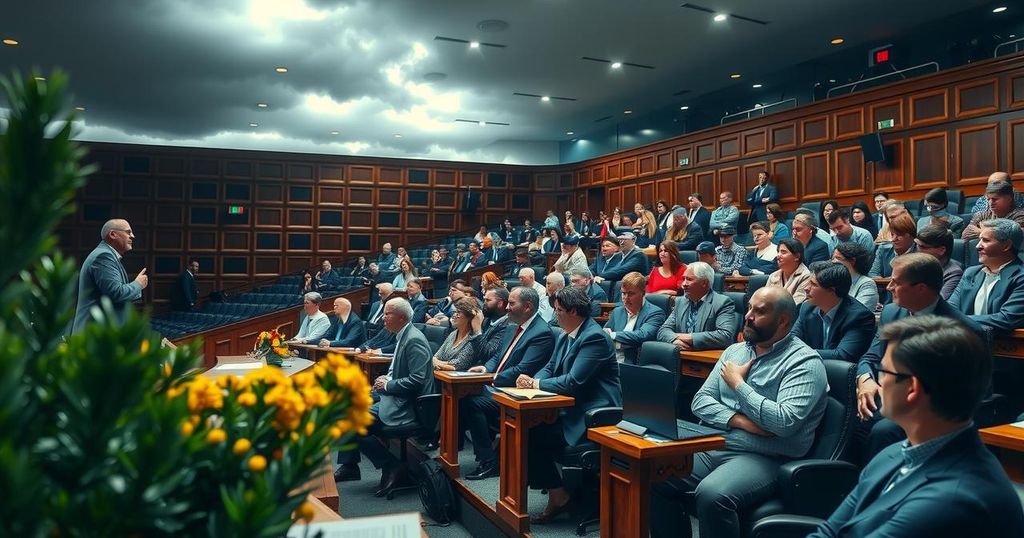Professor Adil Najam Addresses Climate Change Challenges at Cambridge and Oxford
In October 2023, Professor Adil Najam of Boston University delivered influential lectures at the University of Cambridge and the University of Oxford on climate change adaptation and faith-based environmental action. He introduced the concept of the ‘Age of Adaptation’ and discussed the importance of incorporating values in motivating climate efforts, particularly within Muslim communities, highlighting key initiatives in Pakistan.
In October 2023, Professor Adil Najam, Dean Emeritus and Professor of International Relations and Earth and Environment at the Frederick S. Pardee School of Global Studies at Boston University, conducted a series of impactful lectures focused on climate change at prestigious UK institutions, namely the University of Cambridge and the University of Oxford. On October 10, Professor Najam presented two significant talks at the University of Cambridge. The first, held at the Attenborough Center for the Cambridge Conservation Initiative (CCI), was entitled “Climate and Development in the Age of Adaptation.” This talk attracted considerable interest, evident from the standing-room-only attendance of faculty and students. Professor Najam introduced the concept of the ‘Age of Adaptation,’ wherein he posited that the pressing nature of climate change necessitates actions that extend beyond mere reductions in greenhouse gas emissions, especially for vulnerable developing countries that have contributed minimally to the climate crisis. His second talk at the UN Environment Programme’s World Conservation Monitoring Centre (WCMC) concentrated on nature-based climate solutions in Pakistan. He elaborated on leading the “Living Indus Initiative,” which he authored and which has been integrated into Pakistan’s national climate adaptation policies. This initiative has garnered recognition, receiving the UNEP’s ‘Flagship Climate Project’ award. On October 14, Professor Najam delivered a presentation at the Oxford Centre for Islamic Studies (OCIS) entitled “Can Faith Motivate Better Climate Behavior?” Addressing an engaged audience of students, researchers, and faculty, he analyzed the shortcomings of relying solely on scientific and economic arguments to inspire climate action. Najam proposed the inclusion of ethical and faith-based perspectives to promote climate-aware behaviors, particularly within Muslim communities, with an emphasis on water conservation. This presentation formed part of the ongoing ‘Faith and Climate Change’ project that Najam oversees at the Pardee Center as a Faculty Fellow, in collaboration with OCIS.
Climate change poses an urgent global challenge, with profound impacts on ecosystems, human health, and economies. Nations, especially those in vulnerable positions, are increasingly facing the need for adaptation strategies that not only mitigate emissions but also enhance resilience to climate impacts. In this context, faith and values-based approaches are gaining attention as complementary strategies to traditional science and economics. Research indicates that these perspectives can significantly influence individual and collective behaviors towards sustainability and environmental stewardship.
In summary, Professor Adil Najam’s lectures across Cambridge and Oxford highlighted critical issues related to climate change adaptation and the integration of faith in motivating climate action. His presentation at Cambridge emphasized the necessity of immediate, adaptive measures in developing nations, while his address at Oxford advocated for leveraging ethical values to inspire sustainable practices. Collectively, these discussions underscore the importance of comprehensive strategies that combine scientific knowledge with cultural and ethical considerations in combating climate change.
Original Source: www.bu.edu




Post Comment